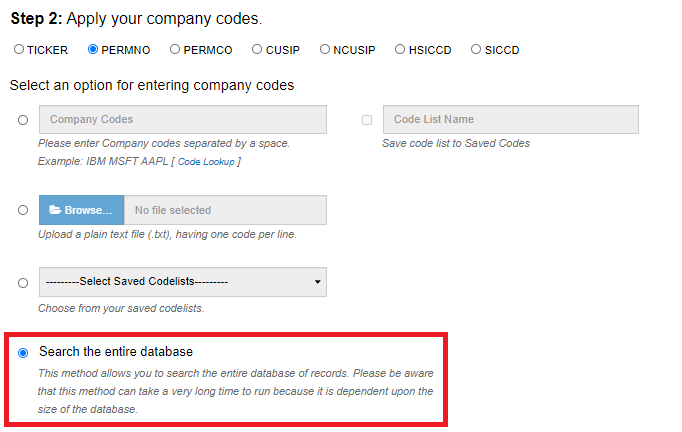I was wondering if there is an efficient way to extract data on all the stocks from the CRSP dataset?
In the Query Form I only have the option to enter company codes individually or to upload a .txt file with one company code per line. Both of which is not an efficient option. Is there a way to possibly achieve this goal in R or Python?

